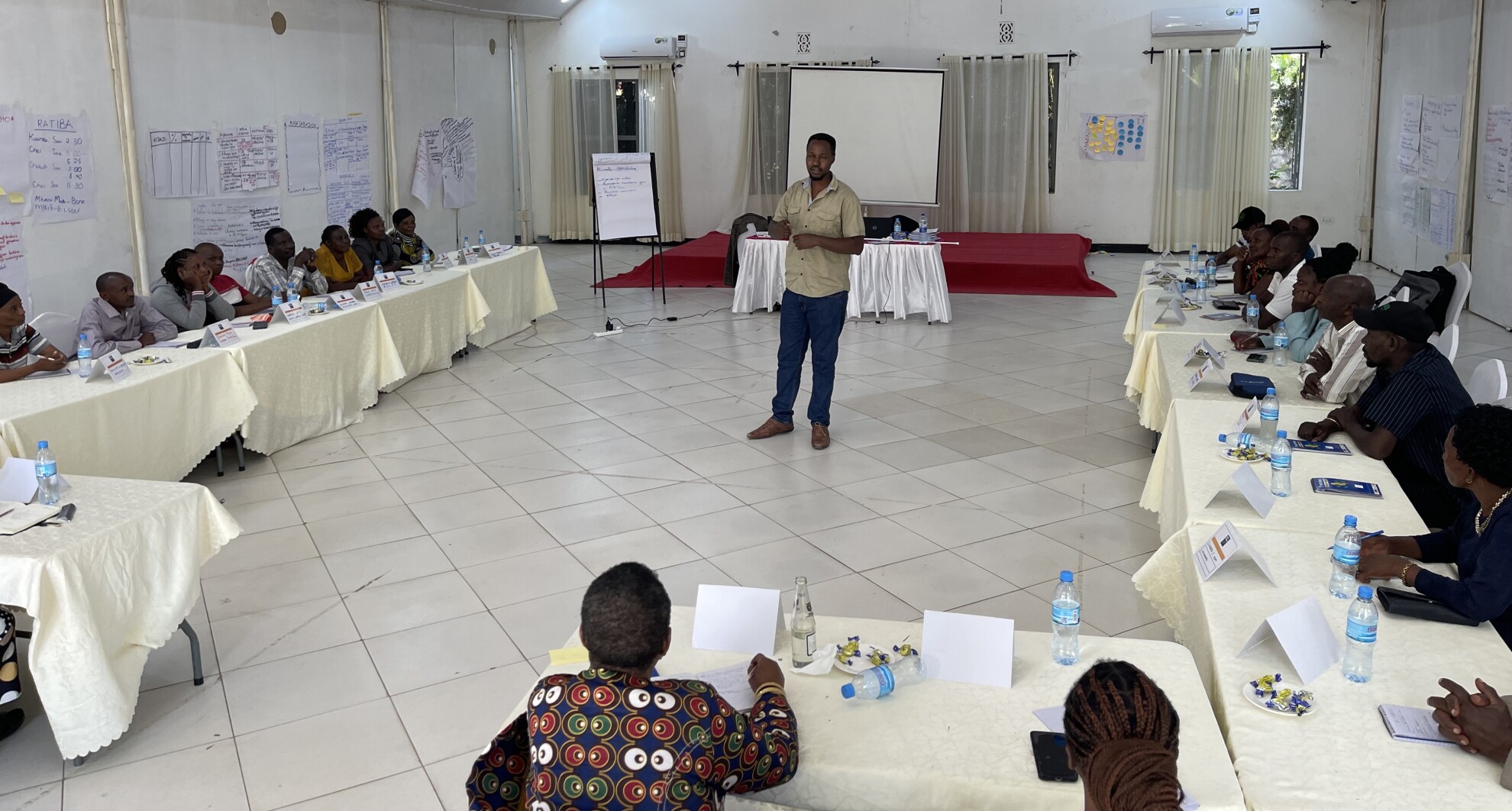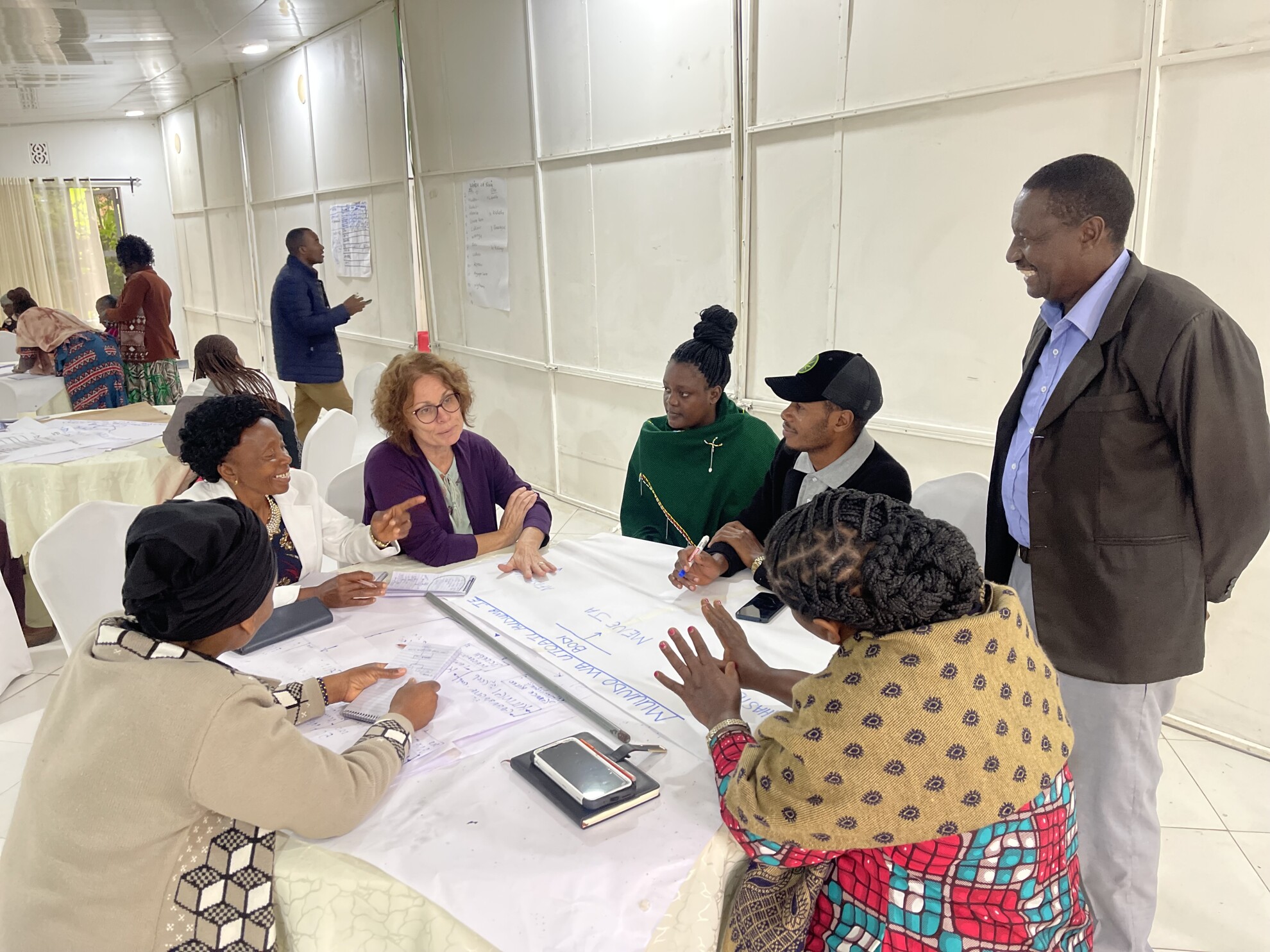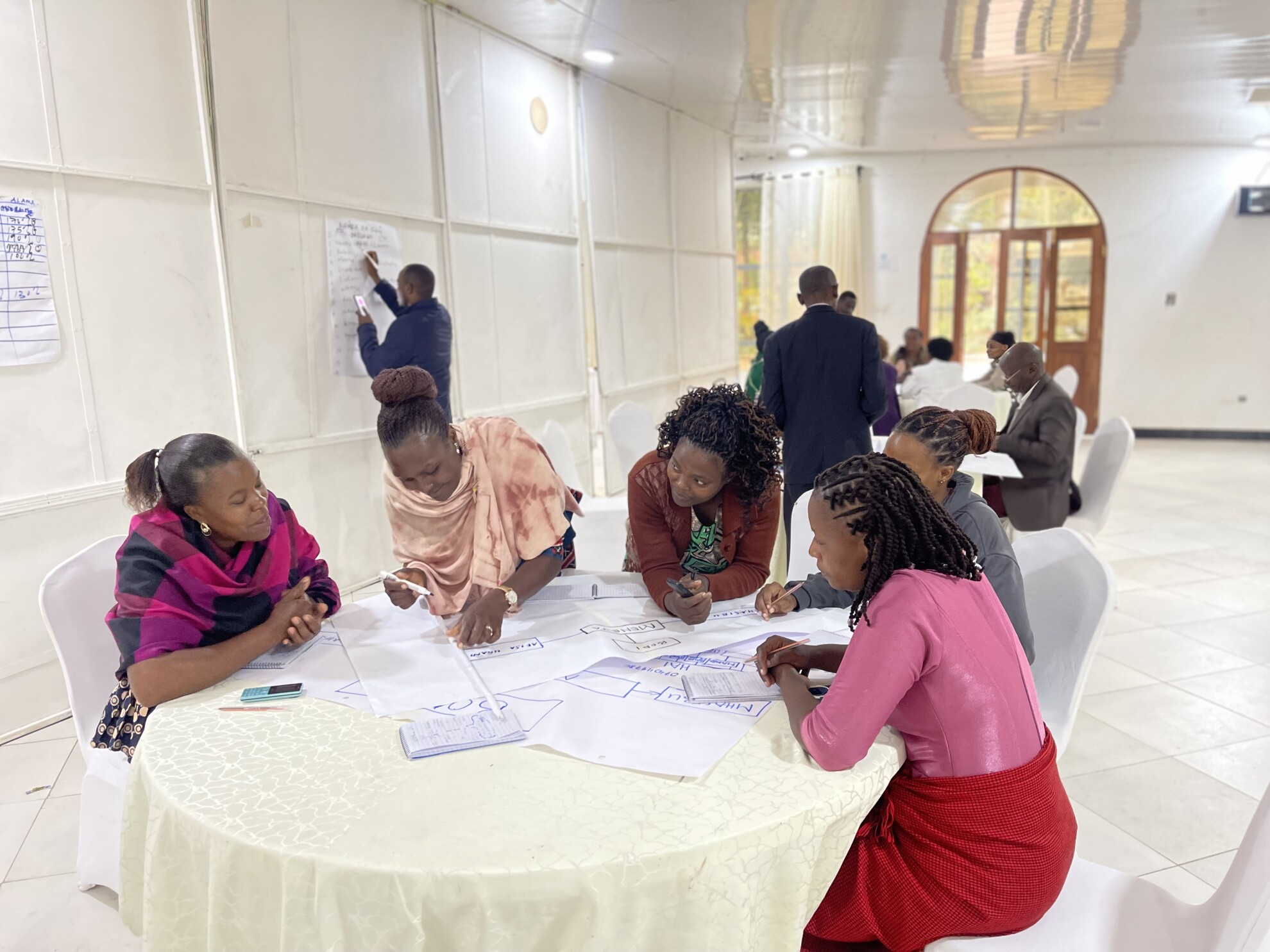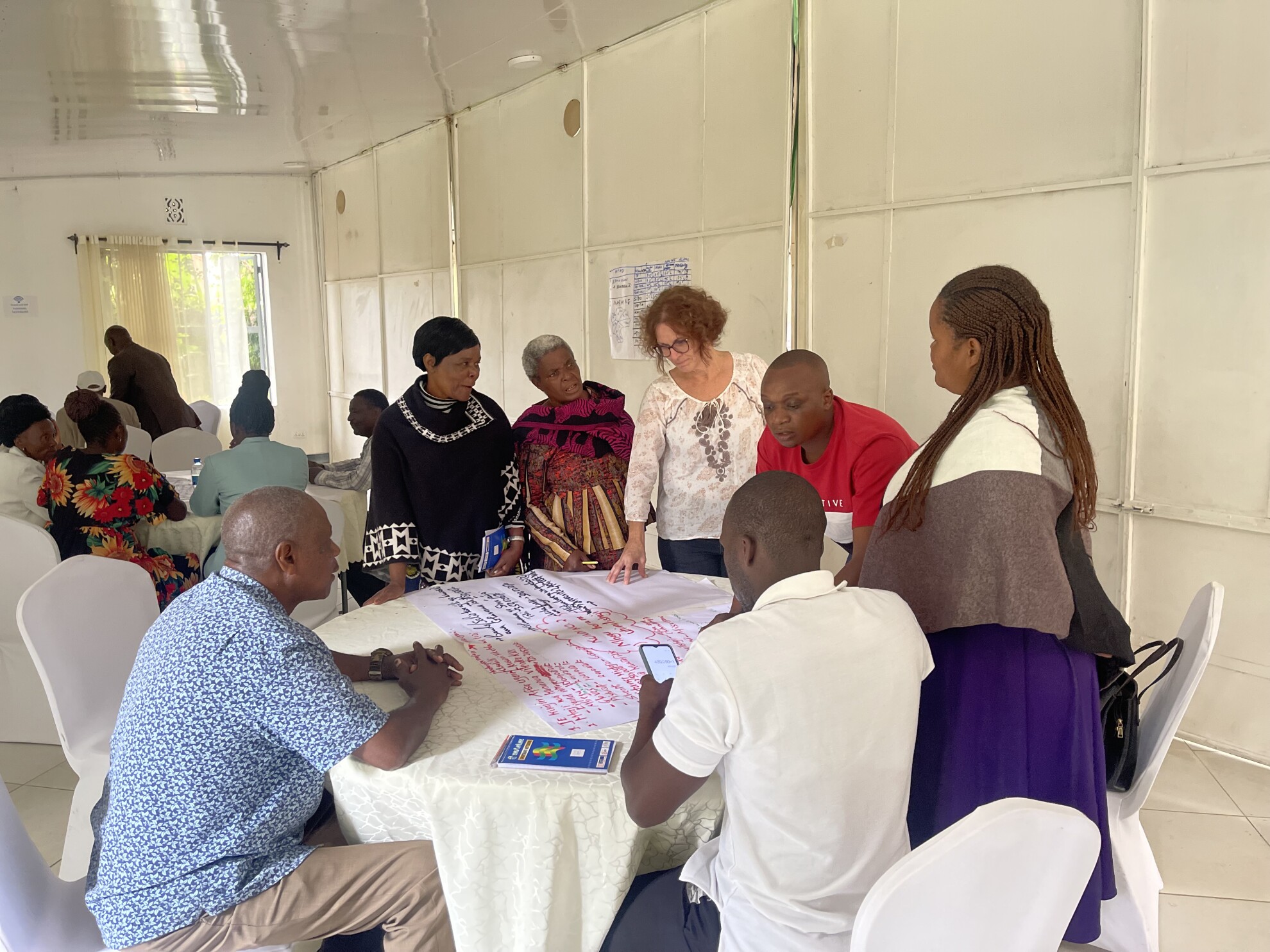Exploring opportunities in Tanzania
28-11-2023In August, Agripooler Yvonne Robben visited the Kilimanjaro Dairy Cooperatives Joint Enterprise Limited (KDCJE) in Tanzania to share her knowledge. The 1,800-member union was running into problems with effectiveness. Thanks to the workshop, KDCJE was given a hand to improve its business case.
Yvonne has lived in Tanzania since 2013, but has also previously lived in Turkey and Zambia. Since 2019, she and a local partner have been running a business in 'breeding and feeding', as she describes it. "I am engaged in the field of cattle improvement, including through artificial insemination. For instance, I sell semen directly to farmers here, but I also work with someone who inseminates cows from smallholders." She herself is also a smallholder: she has four cows and a calf. She is also active for Agriterra's Agripool, working to support cooperatives.
Attention to administration
How does that work with KDCJE? "The aim was to create an organisation chart showing the organisation, including the services they provide to farmers," explains Yvonne. By clearly depicting that, better budgeting can be done. In the process towards the overview, internal problems soon came to light. “One such problem is that the administration was mostly lacking”, says Yvonne. "That really amazes you as a Dutch person sometimes. Small farmers don't keep records of their cows: they don't know when it was born, how often it calved, about their milk production." This lack of records creates new problems, such as diseases in animals and a poorer condition. Not enough records are kept at the umbrella union either, Yvonne was quick to notice. Costs incurred for products, for instance, are not always clear. As a result, putting a price tag on a product becomes a gamble.

Good match
As a smallholder herself who knows Tanzania well, Yvonne is a good match for the training. "I can relate well to problems they face. In my view, it is much harder to have just a few cows than to be a large-scale livestock farmer. After all, they have no milk production for part of the year. And since I have cows of my own, that makes the distance a bit less." In addition, Yvonne speaks Swahili. "Upon arrival, as a Dutch person, they can't get a read on you very well. But after that, I suddenly was a dada, a sister, to everyone. And then they open up about their problems."

Holding up a mirror
Using examples and describing her own situation, Yvonne tries to hold up a mirror to the attendees during the training. "People ask questions, a discussion ensues. And then you see: the message is received." That message, according to Yvonne, is mainly out-of-the-box thinking, and investigating for yourself what works. But part of the training also involves flexibility, she knows. "You never know in advance exactly what questions will come up. For example, I did an extensive presentation on the technical side of cow farming because there was a need for that." This also covered her direct area of expertise, artificial insemination. In addition, Yvonne invited a farmer from Arusha, who changed his approach as a small farmer in the past. He ran into many problems and diseases. With the help of Yvonne's company, he started working with a smaller number of cows that were better cared for.
Action plan
The training results in an action plan that should be adhered to, and also monitored by Agriterra. "We started with 20 ideas, which were reduced more and more - until we had three. After that, we attached a budget to those ideas." An important message that emerged from the workshop: being independent is definitely a possibility for the KDCJE. "Such cooperatives are often pulled from left to right, one tells them A and the other tells them B. Their own objective is partly forgotten. This is also because it is thought that they cannot pay for it themselves. But when you do the maths together, it turns out they can be independent after all."

Sustainable
On her return, Yvonne tells us that the work with the Agripool gives her a lot of satisfaction. "Agriterra has a sustainable mentality. This is not a project that will end in a year's time. And besides, it also gives me the chance to put myself down as a reliable service provider to the attendees." According to her, an advantage is her local perspective. "I can put myself in both the Dutch and Tanzanian situation. As a result, I understand well why a farmer does something in a certain way, and I don't just criticise."

